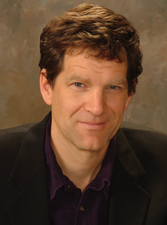Brain Dump
Brain Dump

Dear Linux Magazine Reader,
I always perk up when I hear new information about the brain, with the hope that it will improve my own brain, or, at least, provide it some exercise. The brain has been in the news recently. All of our brains improve when we read about brains in the news: Slashdot covered it; the BBC covered it. The news is, they found a 2,000-year-old skull with part of the brain left in it [1]. No one actually has any hope of jump-starting this brain, but it is still interesting to scientists. The skull with part of a brain was found in a muddy pit, where it appeared to have been part of some kind of ritual offering. According to the experts, "There is something unusual in the way the brain has been treated … ."
You can learn a lot about a culture from how it treats its brains. The ancients Egyptians believed the brain was totally unnecessary for the afterlife; therefore, they extracted it through the nose with a long wire hook as part of the mummification process [2]. Closer to our own time, Albert Einstein's brain [3] was extracted in the hospital where he died by the pathologist who was on call for the evening. The pathologist took photos of the brain and later divided it in several pieces, storing the pieces in two large jars. He had plans to investigate the properties of the brain, or possibly, to get a brain expert to investigate it, but he lost his job at the hospital, and the brain was left in his basement until his ex-wife threatened to throw the jars away if he didn't move them.
[...]
Buy this article as PDF
(incl. VAT)
Buy Linux Magazine
Subscribe to our Linux Newsletters
Find Linux and Open Source Jobs
Subscribe to our ADMIN Newsletters
Support Our Work
Linux Magazine content is made possible with support from readers like you. Please consider contributing when you’ve found an article to be beneficial.

News
-
New Linux Botnet Discovered
The SSHStalker botnet uses IRC C2 to control systems via legacy Linux kernel exploits.
-
The Next Linux Kernel Turns 7.0
Linus Torvalds has announced that after Linux kernel 6.19, we'll finally reach the 7.0 iteration stage.
-
Linux From Scratch Drops SysVinit Support
LFS will no longer support SysVinit.
-
LibreOffice 26.2 Now Available
With new features, improvements, and bug fixes, LibreOffice 26.2 delivers a modern, polished office suite without compromise.
-
Linux Kernel Project Releases Project Continuity Document
What happens to Linux when there's no Linus? It's a question many of us have asked over the years, and it seems it's also on the minds of the Linux kernel project.
-
Mecha Systems Introduces Linux Handheld
Mecha Systems has revealed its Mecha Comet, a new handheld computer powered by – you guessed it – Linux.
-
MX Linux 25.1 Features Dual Init System ISO
The latest release of MX Linux caters to lovers of two different init systems and even offers instructions on how to transition.
-
Photoshop on Linux?
A developer has patched Wine so that it'll run specific versions of Photoshop that depend on Adobe Creative Cloud.
-
Linux Mint 22.3 Now Available with New Tools
Linux Mint 22.3 has been released with a pair of new tools for system admins and some pretty cool new features.
-
New Linux Malware Targets Cloud-Based Linux Installations
VoidLink, a new Linux malware, should be of real concern because of its stealth and customization.
